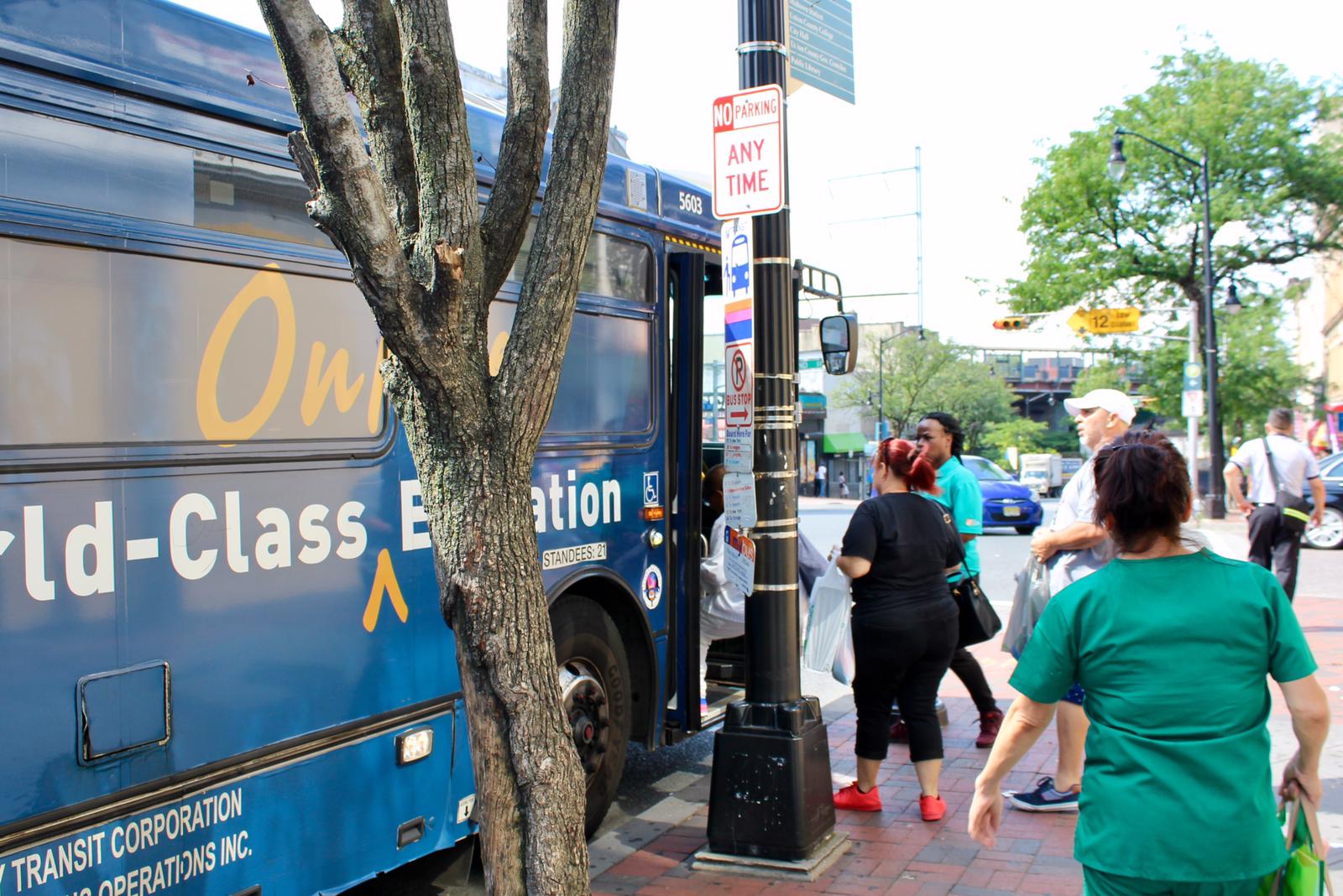As New York, New Jersey and Connecticut look forward to reopening their economies after overcoming the worst of the coronavirus, the federal government needs to step up — stat! — and find money to keep public transit moving in the tri-state area.
Many essential workers — most people of color — who have kept the local economies going during the crisis rely on transit to get to work, and they are getting doubly slammed.
As is well known, low-income families and communities of color have been disproportionately affected by the coronavirus pandemic, with higher incidences of hospitalizations and deaths both because many are frontline workers and because existing health conditions, exacerbated by community crowding and proximity to sources of pollution, put them at undue risk.
For these folks on the front lines of the pandemic, however, exposure to coronavirus doesn’t begin or end at home or at the workplace door. Taking public transit has become riskier than ever, with more regular cleanings (see: New York City nightly subway closure) only a piece of the puzzle to assuage riders’ fears of contracting the virus.
Low-income families and communities of color have been disproportionately impacted by the coronavirus pandemic.
— Tri-State Transportation Campaign (@Tri_State) May 6, 2020
1/2
Yet, for many low-income families, transit is the only option: In Newark — to name just one of many low-income communities around the tri-state area — almost 37 percent of households do not own a car.
Unfortunately, the federal pandemic stimulus package that in March required hundreds of transit agencies to split up $25 billion among them — far less than was needed. NJ Transit says that the $1.7 billion it secured will run out by mid-June. With New Jersey the second-hardest-hit state (after New York) by the virus, it will certainly need more federal assistance, as Gov. Phil Murphy has warned.
New Jersey's essential workers are counting on it.
Take, for example, Kim, 21, a FedEx employee who lives in Elizabeth, N.J., and works overnight shifts four times a week and one daytime shift on weekends, riding NJ Transit buses, mostly during off-peak hours. Kim told us that she and her fellow riders are stressed.
“Nobody is happy to be out,” she said.
To stop the spread of the virus, NJ Transit has closed off the front of buses and placed limits on passenger capacity but, even so, crowding can make it difficult to adhere to the six-foot social-distancing guidelines.
@NJTRANSIT seems to defy the social distancing protocols. Bus #6292 to Paterson at 305pm Where are these new extended buses? pic.twitter.com/OvbeilOpxM
— NewarkCentricCity (@NwkCentricCity) May 2, 2020
And recent service cuts could make it even more so. Last week, NJ Transit reported that its daily fare revenue had dropped from $1 million before the crisis to a mere $41,000 in April as workers telecommute or have lost their jobs. With ridership in free-fall (down 80 percent), the agency is looking for cost savings — cuts that, for frontline workers like Kim and many others doing the jobs that allow the rest of us to shelter in place, could be catastrophic.
In New Jersey, some 83,000 of the more than 920,000 frontline workers use public transit for their work commute, according to the Center for Economic and Policy Research. Of that group, almost 63 percent are women, more than half — 52 percent — are non-white.
Like Kim, many frontline workers rely on buses: Bus trips make up over half of all NJ Transit trips. Many workers worry that because of the pandemic they will face rising fares and permanent service cuts. “It would be a roadblock” to her commute if NJ Transit were to raise fares, reduce service, or eliminate routes, Kim said. “Most of the places I need to go, I need a bus...I would have to come out of pocket a lot more than now to go places if I can’t hop on a bus.” Kim and her family also rely on the bus for other needs, such as grocery shopping or going to medical appointments.
With the necessity of frequent cleaning and transit frontline workers getting sick and calling out, NJ Transit’s expenses are rising just as revenues are plummeting. And although ridership has declined, Kim echoed riders’ hope that NJ Transit will return to normal soon, speaking if not from sheer optimism, then from necessity: Public transit remains their only real means of transportation.
Our state and federal leadership must not allow NJ Transit and other tri-state transit services to deteriorate. Those of us who are able to stay home now owe it to people like Kim, and all essential workers, to make transit service reliable. Not just their livelihoods — but our entire economies — depend on it.
Kevin Garcia (@garciakevino) is the campaign manager for Tri-State Transportation Campaign (@Tri_State) and works closely with frontline workers and other bus riders as part of Tri-State’s NJ Transit bus-improvement campaign, “A New Ride for New Jersey.”







